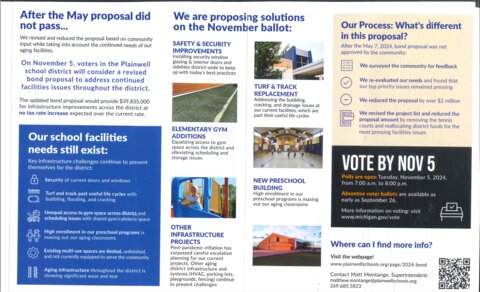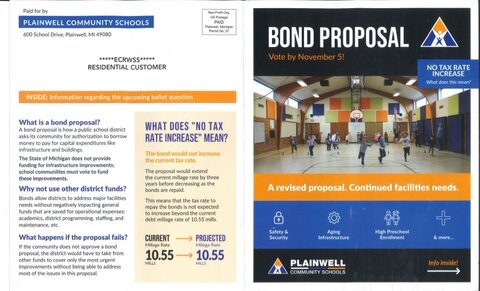Legislators avoid constitutional requirement through opaque descriptions
‘It’s trickery,’ legislative critic says
Michigan lawmakers used vague wording to skirt a constitutional requirement when they gave taxpayer money to private organizations through the 2025 state budget.
When the Legislature gives private companies taxpayer funds, the Michigan Constitution requires it do so by a two-thirds vote in both the House and Senate.
Lawmakers gave $2 million to the West Michigan Teacher Collaborative, according to the House Fiscal Agency, which reported the names of the budget’s grant recipients and the amount each received. The budget document itself, however, does not use the term “West Michigan Teacher Collaborative.” Instead, it describes the grant indirectly.
“From the funds appropriated in part 1 for community enhancement grants, $2,000,000.00 shall be awarded to a teacher collaborative located in a county with a population between 600,000 and 700,000 according to the most recent federal decennial census to support programming,” the budget reads.
Most grants in the 2025 budget are described this way. It is a longstanding practice, according to Benjamin Gielczyk, associate director of the House Fiscal Agency.
“The wording you reference (using populations) has really been the practice for enhancement grants/special grants for quite some time,” he told Michigan Capitol Confidential in an email. “It stems from how we identify specific local units in statute. For example, many statutes specific to Detroit describe it as a city with a population greater than 600,000 according to the most recent federal decennial census. Since it doesn’t specifically identify a city or local unit and uses a population range, it provides an ‘open class’ meaning technically after any census another local unit could qualify. This really deals with the two-thirds requirement under Article IV sections 29 and 30.”
Rep. Ann Bollin, R-Brighton Township, who serves on the House Appropriations Committee, scorns the practice. “It’s trickery,” she told CapCon. The vague wording thwarts accountability and transparency, she added.
Legislators need to change their practice, a legal expert told CapCon. “The Michigan Constitution is clear that laws targeted to local interests require the support of two-thirds of the Legislature,” said Steve Delie, a specialist in government transparency and open records at the Mackinac Center for Public Policy.
“The legislature should follow the process established by the Constitution, rather than employ these misleading tactics,” he said.
Michigan Capitol Confidential is the news source produced by the Mackinac Center for Public Policy. Michigan Capitol Confidential reports with a free-market news perspective.


 Michigan House resolves to disclose enhancement grants, recipients
Michigan House resolves to disclose enhancement grants, recipients
 Women-focused business groups get $3 million in 2025 budget
Women-focused business groups get $3 million in 2025 budget
 Minority-owned businesses get $10 million in 2025 budget
Minority-owned businesses get $10 million in 2025 budget



 Michigan spends $6.9M advertising 'cost-free' pre-K
Michigan spends $6.9M advertising 'cost-free' pre-K
 Michigan pushes $762M pre-K expansion while K-12 performance declines
Michigan pushes $762M pre-K expansion while K-12 performance declines
 At Jackson Schools, bulk of federal COVID funds went straight to teachers
At Jackson Schools, bulk of federal COVID funds went straight to teachers